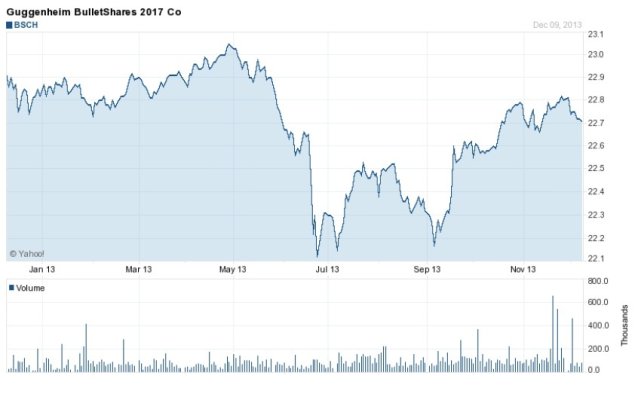My asset allocation has gotten to 57.6% stocks, thanks to the good stock performance in 2013. On Jan 2, my plan calls for trimming this back to 50% stocks. It will involve moving money from the total stock market VG fund to the total bond market fund.
The outlook for bonds sure doesn't seem good, but my plan doesn't allow me to make decisions based on my forecast.
Thoughts?
My thoughts are these.
1. "Outlook for bonds doesn't seem good" - that's been true for years. Yet we keep being surprised by lower interest rates. So we really don't know what might happen next year. The economy could take off and hurt bonds (and then stocks if interest rates jump). On the other hand, the economy could stall, and bonds would do OK. In this case stocks might get hurt.
2. We did just have an incredible increase in stock prices over the last two years. Up something like 50% over the past two years. Why don't stocks seem just as vulnerable as bonds?
Me - I hedge my bets by sticking with my planned allocation. Often I'm wrong, only occasionally right, so I'm usually glad I left the AA well enough alone.
On bond funds specifically:
I tend to hold short to intermediate term bond funds anyway, and I don't use bond index funds.
On the total bond market fund - I'm not convinced there is the same benefit to owning a total market bond fund as there is in the total stock market fund. These "indexes" are very different animals. Isn't there a huge distortion in the total bond market funds due to the issuance of so much Treasury debt? I would consider other bond funds. - Hey, like 5-yr PenFed CDs yielding 3%!
Actually - I did put part of my short-intermediate bond allocation into those CDs recently as their yield and holding period are better than some of my other intermediate bond funds but at considerably lower credit and interest rate risk. But only a part!

